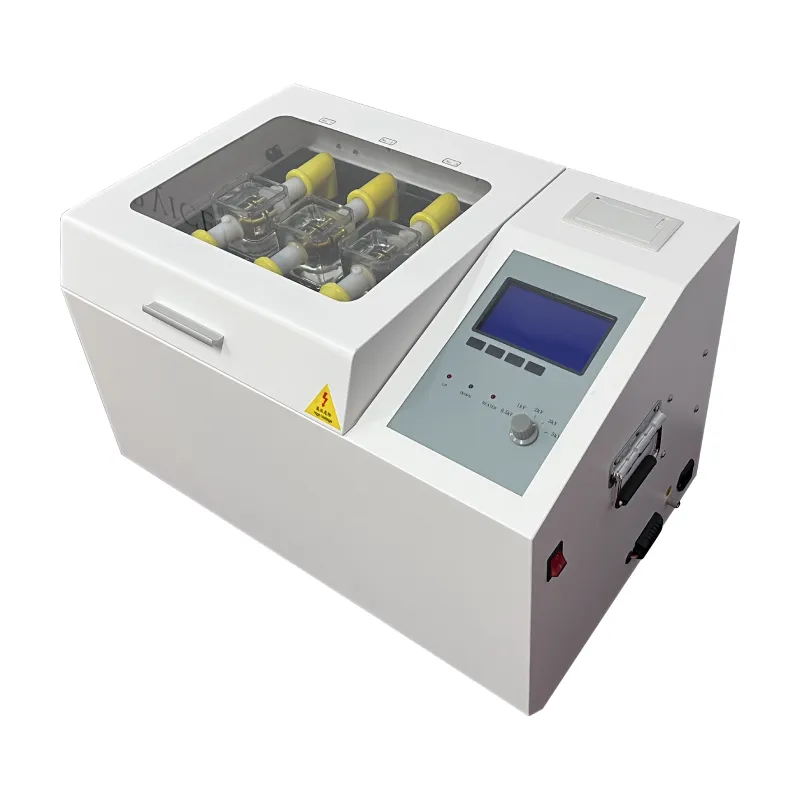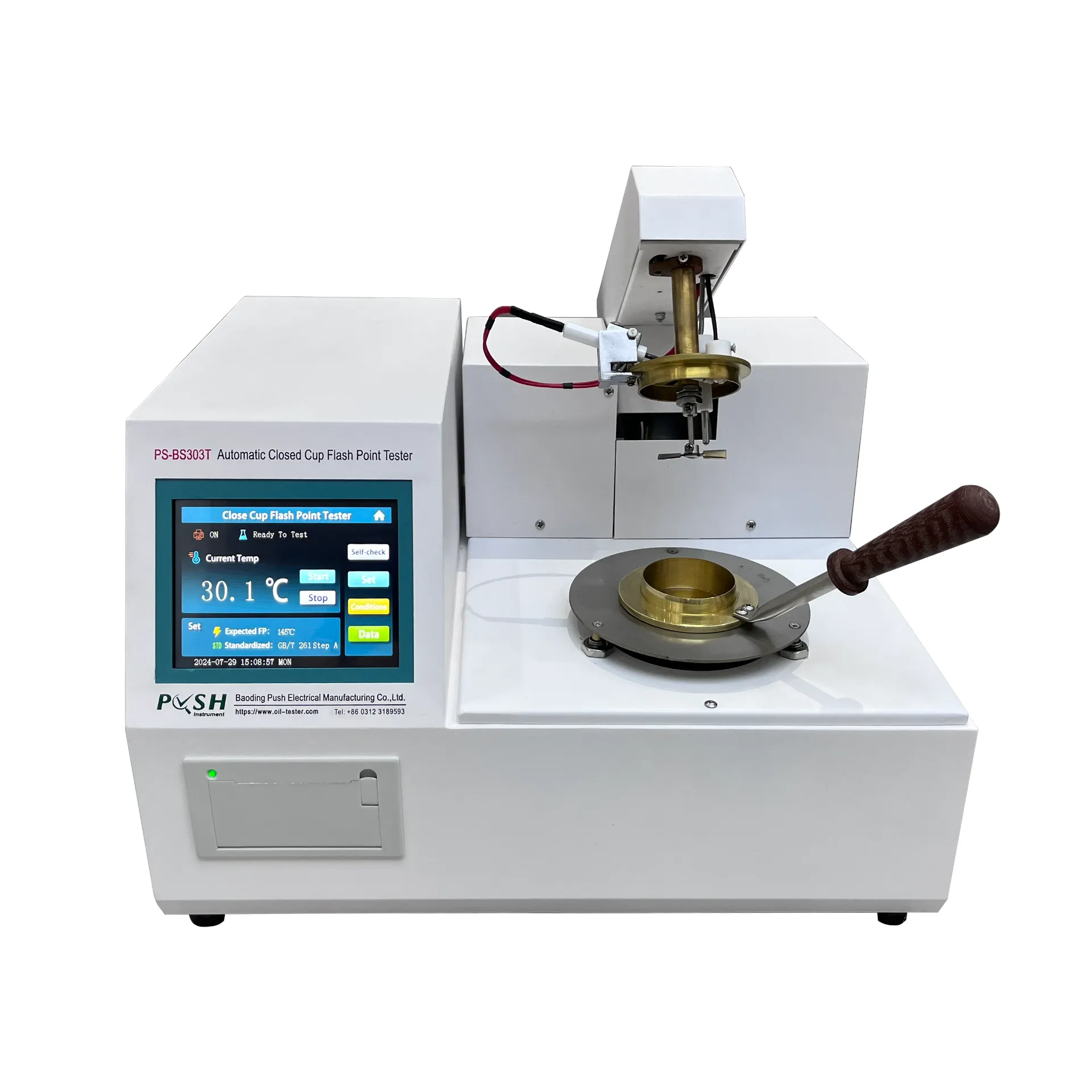TEL:
+86-0312-3189593
 English
English

Telephone:0312-3189593

Email:sales@oil-tester.com
2 月 . 10, 2025 10:30
Back to list
PS-2003/2006 Three-Cup Or Six-Cup Insulating Oil Acid Value Tester
Dielectric oil testing is a critical component in the maintenance and reliability assurance of electrical transformers. By examining the condition of the insulating oil, one can preemptively identify potential electrical failures, thus ensuring the longevity and efficiency of the equipment in question. This article delves into the intricacies of dielectric oil testing theories with a focus on their applications, methodologies, and the pivotal role they play in enhancing transformer longevity.
Dielectric oil testing is not just a corrective measure but a preventive strategy that integrates into a broader reliability-centered maintenance framework. Companies with a robust testing regime often report reduced unexpected downtime, cost savings on emergency repairs, and an overall increase in operational transparency. Importantly, employing certified laboratories for oil analysis adds an authoritative layer of quality assurance, enhancing trustworthiness. Among the emerging advancements in the field is the advent of online dielectric oil sensors that provide real-time insights into transformer health. These innovations allow for predictive maintenance strategies, enabling operators to address emerging issues before they escalate. Integrating such technology with IoT systems facilitates centralized monitoring and analytics, which is valuable for large-scale operations. Authoritative resources for best practices include annual papers from established bodies like the Electric Power Research Institute (EPRI) or contributions to trade publications like the IEEE Transactions on Power Delivery. Engaging with these resources can equip stakeholders with current methodologies and evolving testing algorithms, ensuring that their practices align with the state-of-the-art in dielectric evaluation. Understanding dielectric oil testing theories and their practical applications is indispensable for engineers, maintenance teams, and reliability managers in power distribution sectors. Mastery of these concepts can significantly elevate asset management strategies, ensuring operational continuity and safety. Through embracing both traditional methodologies and modern technological advancements, entities can safeguard their electrical infrastructure against the backdrop of an ever-increasing demand for energy resilience.


Dielectric oil testing is not just a corrective measure but a preventive strategy that integrates into a broader reliability-centered maintenance framework. Companies with a robust testing regime often report reduced unexpected downtime, cost savings on emergency repairs, and an overall increase in operational transparency. Importantly, employing certified laboratories for oil analysis adds an authoritative layer of quality assurance, enhancing trustworthiness. Among the emerging advancements in the field is the advent of online dielectric oil sensors that provide real-time insights into transformer health. These innovations allow for predictive maintenance strategies, enabling operators to address emerging issues before they escalate. Integrating such technology with IoT systems facilitates centralized monitoring and analytics, which is valuable for large-scale operations. Authoritative resources for best practices include annual papers from established bodies like the Electric Power Research Institute (EPRI) or contributions to trade publications like the IEEE Transactions on Power Delivery. Engaging with these resources can equip stakeholders with current methodologies and evolving testing algorithms, ensuring that their practices align with the state-of-the-art in dielectric evaluation. Understanding dielectric oil testing theories and their practical applications is indispensable for engineers, maintenance teams, and reliability managers in power distribution sectors. Mastery of these concepts can significantly elevate asset management strategies, ensuring operational continuity and safety. Through embracing both traditional methodologies and modern technological advancements, entities can safeguard their electrical infrastructure against the backdrop of an ever-increasing demand for energy resilience.
Latest news
-
Differences between open cup flash point tester and closed cup flash point testerNewsOct.31,2024
-
The Reliable Load Tap ChangerNewsOct.23,2024
-
The Essential Guide to Hipot TestersNewsOct.23,2024
-
The Digital Insulation TesterNewsOct.23,2024
-
The Best Earth Loop Impedance Tester for SaleNewsOct.23,2024
-
Tan Delta Tester--The Essential Tool for Electrical Insulation TestingNewsOct.23,2024





